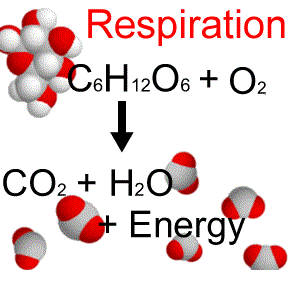What are Chemical Reactions?
Changing substances to different substances by breaking or forming chemical bonds.
.
Reactants go in ----> Products come out
(substances changed in reaction) --> (substances formed)
Video on Chemical Reactions
Example:

Bond Energy: The energy needed to break a bond or energy released when a bond is formed
Chemical equilibrium: is shown with arrows in both direction. When reactants and products are formed at the same rate.
In order for reactions to start, energy is required known as activation energy.
Some reactions absorb energy than they release (Endothermic Reactions)
So why does this matter?
At this moment your body is going through many chemical reactions at a cellular level with the help of ENZYMES.
What are Enzymes?
Enzymes are known as catalyst because
1. They lower the energy needed for a reaction to take place.
1. They lower the energy needed for a reaction to take place.
2. Reactions happen at a faster pace
All Enzymes are proteins but not all proteins are enzymes.
What????? It's kinda like....

Check this out....
Some enzymes only work in optimal temperature and/or pH beyond that they become denatured (destroyed)
Other enzymes break items down like Amylase in your saliva.
 Amylase is an enzyme that catalyzes starch into sugars in your mouth.
Amylase is an enzyme that catalyzes starch into sugars in your mouth.
Helpful tip: Enzymes can be identified by the ending of -ase. (ex: amylase, lipase, etc...) there are exceptions like pepsin and trypsin which are proteins used for digestion.
So how do enzymes work?....
Enzymes have a specific site where specific substances attach.Changing the enzyme structure stops the enzyme from working properly.
So enzymes are specific kind of like a lock and key.
So enzymes are specific kind of like a lock and key.
Substrates—reactants that bind to an enzyme’s active sites
Lock-and-key model—only certain substrates will bind to particular enzymes and allow reactions to occur
What happens to enzymes once they complete their task? They are recycled and used again and again and again
Review Video
No comments:
Post a Comment